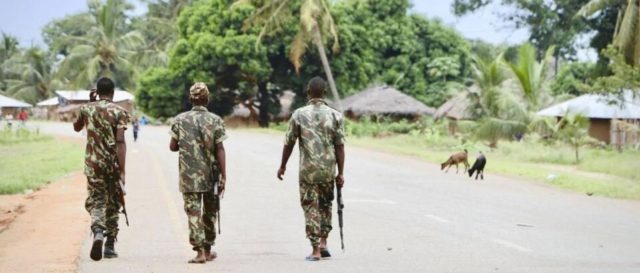OPINION: At times, in our reading of the often complex conflict situations in Africa, there is a tendency to be “episodic” in our analysis, and this has found its way into the current narrative regarding the situation in Mozambique, writes Senzwesihle Ngubane.
Opinion: Senzwesihle Ngubane
AT TIMES, in our reading of the often complex conflict situations in Africa, there is a tendency to be “episodic” in our analysis, and this has found its way into the current narrative regarding the situation in Mozambique.
In this case, “one episode” of an attack on a hotel seems to have generated resolute calls for the Southern African Development Community (SADC) in general, and South Africa in particular, to “intervene” in Cabo Delgado.
A complex conflict system, that began four years ago, is now seemingly being reduced to a “single episode”, and that alone has become the rallying cry, and indeed the drum beat for an intervention. This might be treading dangerous waters.
The second tendency is to engage, consistently and almost stubbornly, in what could be regarded as the politics of “immediate naming” with the use of a single-focus lens to frame a rather complex situation that has been in the making for years.
In this case, the emerging view that is unfortunately holding sway is framing the situation in Mozambique as an “insurgency” led by an “Islamic State Isis-affiliated group”. Such a simplistic framing would, logically, call for a counter and requisite militaristic response, with less regard to whether capabilities exist in the region, such as the SADC, to mount a counter-offensive that would deal with the so-called “insurgency” within the shortest possible time.
In the search for answers in terms of what a response should be in the current situation in Mozambique, a critique and a lesson are in order.
First, the critique. There must be occasion to hold the African political leadership across the continent accountable for its own failures. Apart from the perennial issue of mis-governance on the continent, one area that is glaringly indicative of such a failure is that, 18 years on, the so-called African Standby Force (ASF) is nowhere to be seen, and arguably nowhere near a state of readiness for deployment to assist in situations – which presumably it was envisioned for – such as Mozambique.
Initiated in 2003, huge financial resources have been channelled over the years to realise the ASF, and human resources have been deployed to operationalise what was supposedly going to be an Africa-wide response mechanism for conflict situations. Lamentably, 18 years later, none of our conversations about a need to assist in, and respond to, Mozambique have mentioned the deployment of such a force.
Instead, and given that parts of Tanzania have also been affected by the crisis, an ad hoc coalition of the willing might arise to confront the issue, thereby further placing doubt on the calling into question the usefulness of the current ASF structure and the regional organisations on the continent.
Second, the lesson. Those who are advocating for the strengthening of a military response to the tragedy unfolding in Cabo Delgado must draw a leaf from other such responses elsewhere on the continent.
In situations such as the Lake Chad Basin, the Sahel region, Libya and Somalia, the initial counterinsurgency responses, which resulted in a military stampede inclusive of foreign armies and mercenaries, have not, over the many years of their deployment, yielded the desired result – to break the back of the so-called insurgents.
In the case of the Sahel, for instance, the combined military strength of the G5 Sahel countries, which includes Mali, Burkina Faso, Niger, Chad and Mauritania, backed by France, among others, accompanied by the pouring of huge financial resources into sustaining this military option, over more than five years, has been unable to militarily liquidate the so-called terrorists operating in the region.
This counter-insurgency offensive exposed the mistakenly single-lens reading that they were fighting an Islamic-inspired insurgency, when it became clear that in this theatre of battle there exists a toxic cocktail – similar to Cabo Delgado – of organised criminal syndicates, drug and human traffickers organised to opportunistically exploit the genuine citizens’ grievances and the weaknesses in the state apparatus.
Today, almost six years after these counter-strikes in the Sahel failed to produce results, the penny is slowly dropping that what is in fact required is all-encompassing development and governance-led approaches and responses.
In this regard, the SADC would do well to initiate, concretely, a deepened dialogue with these other regions and countries in Africa, to better appreciate what their experiences with stabilisation efforts have been, so that they, too, do not opt for policy responses that will result in them coming unstuck in a military confrontation that would have no end.
In this context, the SADC political leadership is called to account. In its last summit in 2020, it “welcomed the decision by the government of Mozambique to bring to the attention of the SADC the violent attacks situation in the country” and further expressed its “solidarity and commitment to support Mozambique in addressing the terrorism and violent attacks …”
Since then, no discernible actions have been seen, and no coherent voice has been heard about what steps the SADC will take. The longer its wait, the more comple the situation will be on the ground. But, when it does mount a response, it must take heed from other African experiences, that an exclusively military option in Cabo Delgado just won’t cut it.
* Ngubane is a Conflict Resolution Expert who is associated with the African Centre for the Constructive Resolution of Disputes (Accord). He writes in his personal capacity.
** The views expressed herein are not necessarily those of the DFA and Independent Media.








